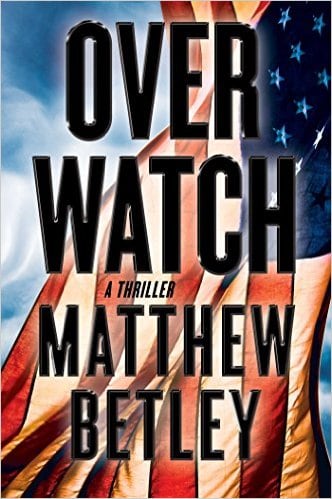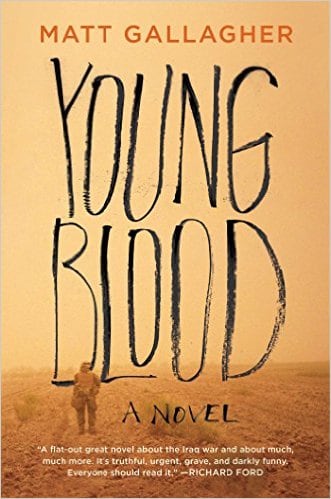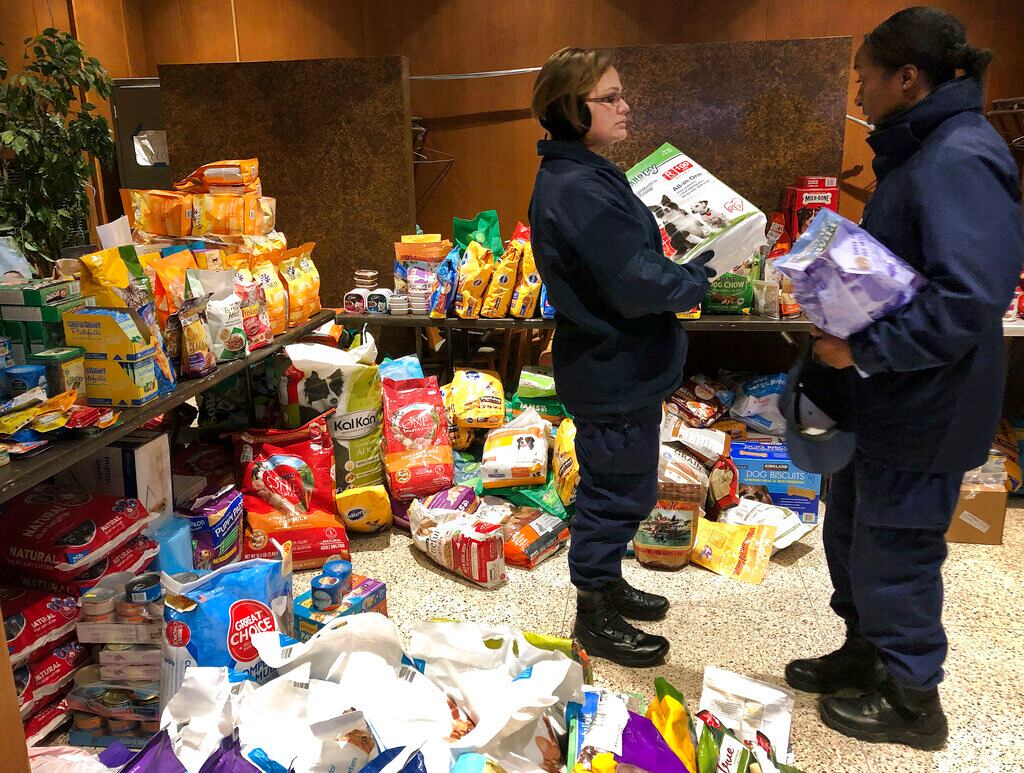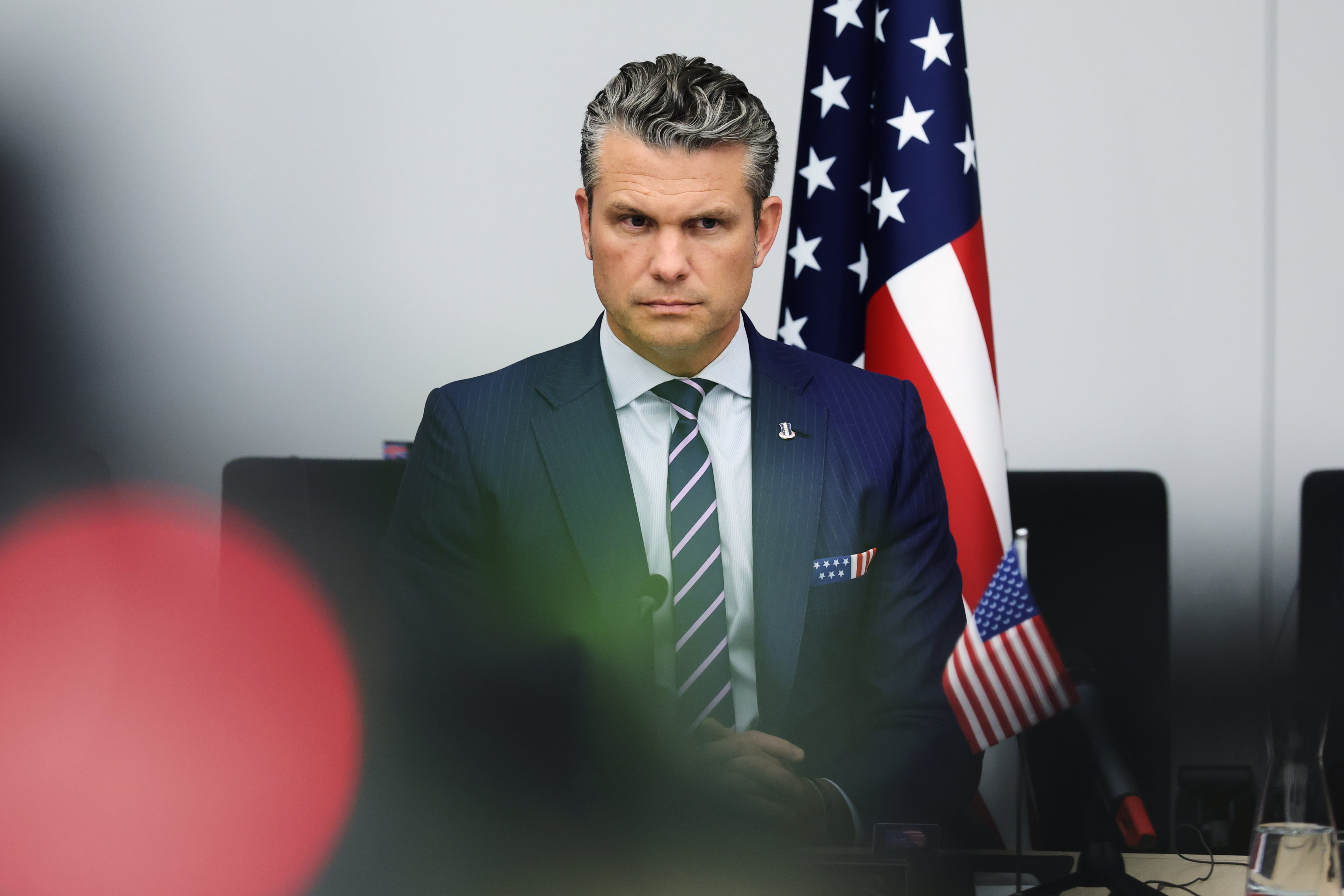Two action-packed novels just hitting the shelves are both set in Iraq and both written by former junior combat arms officers who both left the military in 2009.
The stories draw largely from their own experiences in the war-torn region.
"Overwatch," an action-thriller just out today, is written by first-time author and former Marine Capt. Matthew Betley, who served for a decade as an infantryman and intelligence officer, including tours in Djibouti and Fallujah.
His central character is a past Marine officer who must help stop a shadowy organization searching for an Iraqi artifact that threatens to draw the United States into a war with Iran.
Meanwhile, former Army Capt. Matt Gallagher's "Youngblood," released Feb. 2, is set during the U.S. withdrawal from Iraq and follows a young lieutenant at odds with a combat-tested sergeant.
Gallagher, who served as scout platoon leader and armor officer for five years, has been compared to a young Hemmingway. His Iraq War memoir "Kaboom," based on the controversial blog he published while deployed in 2007, got rave reviews.
Military Times sat down with both authors to explore the pleasure and pain of putting good words together and telling stories about war that resonate. Answers have been edited for brevity.

"Overwatch: A Thriller" (The Logan West Thrillers) by Matthew Betley, Atria/Emily Bestler Books, hardcover, 400 pages, $26
Photo Credit: Atria/Emily Bestler Books
Q. How did you get into writing?
Betley: In 2009, my wife and I were on vacation, and I was reading a best-seller that bored me out of my mind. I thought, "I can write a better book than this." I have tough-guy dialogue in my head all day long. A year later, I said screw it and started writing. I decided to go with the old adage "write what you know."
Gallagher: I had already written the nonfiction book "Kaboom" [in 2010]. The blog kind of led to the book, which covered the entire 15-month tour. I didn't know how somebody became a writer, so I moved to New York and decided to go for it. I wanted to write fiction, so I decided to go back to grad school to pursue [a Master of Fine Arts].
Q. Tell me about your books.
Betley: I made my protagonist a former Marine officer, and I made him a relapsing alcoholic, whereas I'm a recovering alcoholic and have never relapsed. The book starts with him waking up from a relapse and he has to kill someone by Page 3. It triggers a global race for an artifact, and it's told in two timelines. There are also flashbacks of the ambush that happened to his platoon in Fallujah. The focus was on being an action-thriller, like a literary "Call of Duty" or a literary Michael Bay movie.
Gallagher: I thought I was done writing about the war or Iraq, at least for a while. I was halfway through writing another novel when we started withdrawing. There was something about the image of those last Strykers going over the sand dunes in Kuwait. It started as a short story, a ghost story, about a legendary American soldier that had disappeared in this town some years before. It kind of evolved into "Youngblood."
So it's a bit of a detective story blended into a traditional war narrative. It was a way for me to get at a larger slice of the war. Not just how that resonated with the souls of the American soldiers who deployed there multiple times, but the Iraqi civilians who had been enduring it for nine years. … I wanted the Iraqis to have a fullness and dimensionality that I hadn't seen yet. Maybe I was done with the subject, but the subject wasn't done with me.
Q. What are some obstacles or struggles you experienced?
Betley: The whole thing was a gut-wrenching roller coaster going from writing to where we are today because it took me 18 months, eight days for the first draft. I'm fortunate that I was put in touch with a best-selling author who gave me some great and brutal constructive criticism. He said, "You've got a lot of talent, but you need to be disciplined" and "Everybody's first draft is crap." I found the top 92 agents that catered to commercial fiction. After rejection after rejection after rejection, No. 83 said, "We absolutely want this." It took about a year to get an agent and another 14 months before we got a book deal. You need to have a business plan. It's great to write, but if you want to do this for a living, you have to be able to sell a book that people want to read.

"Youngblood: A Novel" by Matt Gallagher, Atria Books, hardcover, 352 pages, $26
Photo Credit: Atria Books
Gallagher: Talent is great, tenacity is better. I had kind of already written nonfiction and gotten my own voice, my own story, out of my system. Third person lacked emotional texture, so I switched to first person. Early on, it was kind of hard to get out of my own head. Something that was really helpful was I was working part time as a speech writer at [Iraq and Afghanistan Veterans of America]IAVA.
Writing about Iraqi characters, I was very cognizant that I didn't want to make them like stock silhouettes. Americans called it a withdrawal, surge. Iraqis called it a collapse. Getting into those granular details like that not only helped fill out the narrative but also better understand what effects the eight to nine years had on an Iraqi family.
Q. How does your military experience fit into writing?
Betley: I still have a Marine mentality. Once a Marine, always a Marine. I'm sure I was wired like this before the Marine Corps, but the Marine Corps brought it out exponentially. So that's who my characters are. We can be a highly dysfunctional bunch — we're men of extremes.
Gallagher: The initial spark for writing was my experience overseas. But over the course of writing this, I was more interested as a citizen and as a veteran. I was growing into those identities and shedding my soldier identity. This was a nine-year thing that reflects on all of us as an entire citizenry and entire country. How will this look down the line to our kids and grandkids? It kind of gave me the continued drive to see this through and to keep writing about it that way.
Q. Is writing military-themed fiction a cathartic experience?
Betley: I really am a composition between my two main characters, besides the fact that I'm not running around killing people on a daily basis. It really is cathartic, but not in the sense that you might think. I wanted to create — [author] Brad Thor said it — "faction." Creating huge fiction stories, but they're real things, real events. I want to create an alternate universe with reality based in it, but where our leaders do the hard, right thing.
Gallagher: The blog was more cathartic, looking back on it. … This book was a little different. It's one man's attempt at a reckoning at what we as a country had wrought on a people. I wanted it to be something where someone who doesn't read war novels wants to read it. The best war stories aren't really about war — war is the backdrop, but they're stories about love, about hope, about loss. … Most of it is dealing with after effects of violence and the unintended consequences of that, and how that lingers in people's souls.
Q. What advice would you give service members searching for a creative outlet?
Betley: If you're getting out of the military, you're getting out for a reason. Find something that you like and just pursue it. There are so many resources nowadays. It's amazing in a positive way.
Gallagher: Embrace the suck. If you want to do something, that passion's great, that talent's great. If you find that outlet, just know that not every day's going to be easy.
Charlsy Panzino covers veterans, entertainment, fitness and travel. Email her at cpanzino@militarytimes.com. Staff writer Jon R. Anderson contributed to this report.
Charlsy is a Reporter and Engagement Manager for Military Times. Email her at cpanzino@militarytimes.com.





